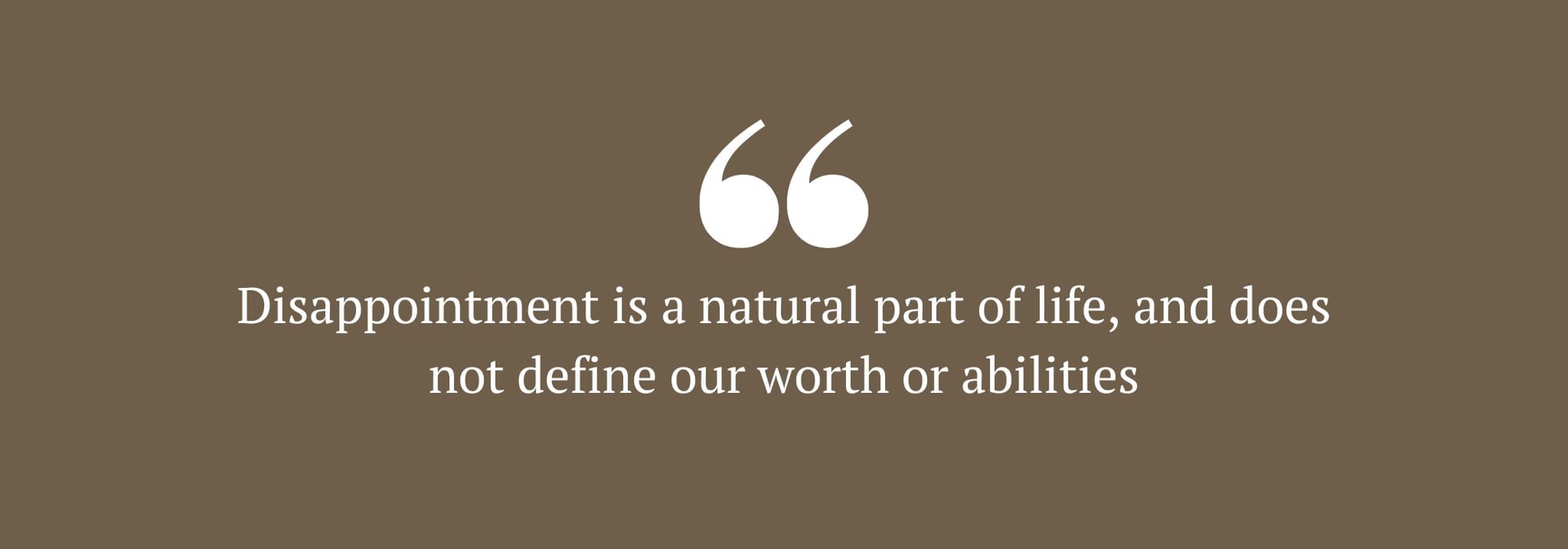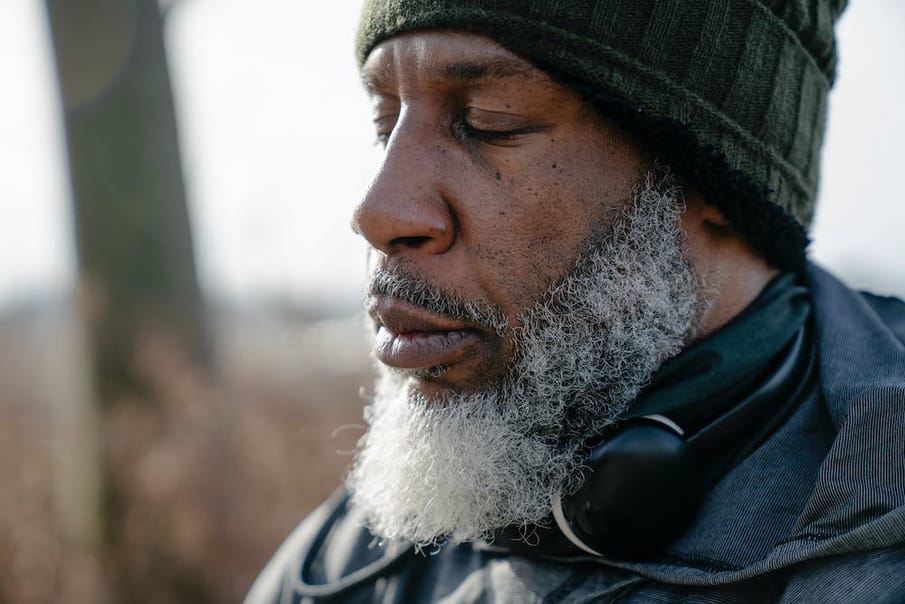Flip the script and take back control when things don’t go as planned
From not landing a dream job to having a bad time on holiday, disappointment crops up in our lives and can be, well, a disappointing emotion to deal with. From big disappointments to small letdowns, we all know the frustration and sadness that can accompany it.
“Disappointment is an emotion we’ve all experienced at some point in our lives,” says psychotherapist Amy Baglietto. “It can arise when our expectations are not met, when things do not go as planned, or when we feel let down by someone or something. Although disappointment can be a difficult emotion to navigate, it’s also a powerful teacher that can provide valuable insights into ourselves and what truly matters to us.”
Here, we look at ways to deal with disappointment – and how you may even be able to make the most of this emotion.
Treat yourself with self-compassion
To start, Amy emphasises the need to treat yourself with self-compassion in the wake of disappointment. “Often when we face disappointment, we can be extremely hard on ourselves, blaming ourselves for the outcome or feeling like we are not good enough,” Amy explains. “However, it’s crucial to remember that disappointment is a natural part of life, and does not define our worth or abilities.
“Practising self-compassion involves treating ourselves with kindness and understanding, just as we would a close friend or loved one experiencing disappointment. This means acknowledging our emotions and allowing ourselves to grieve or feel upset, while also reminding ourselves that setbacks are a normal part of the journey. By cultivating self-compassion, we can offer ourselves the support and comfort we need to heal and move forward.”
Understand your values
If you feel disappointed by something, it’s worth asking yourself exactly what it is that makes you feel this way. Sometimes it’s obvious, but it can also help you learn about what really matters to you. Let’s say you’ve applied for a handful of jobs, which you didn’t get. Are there any jobs in particular that you feel upset or frustrated that you weren’t successful with?
“By recognising that disappointment reveals what truly matters to us, and embracing it as an opportunity to re-evaluate our priorities, we can harness its energy to create a plan of action that propels us towards our goals,” Amy says.

Learn from disappointment
Let’s go back to the job scenario. If you realise you’re most disappointed about being turned down for a creative job, but aren’t as upset about not getting a role in customer service, you can use this to home-in on what really matters to you.
When you feel ready, it can help to look back at the disappointing situation and consider what you could do differently. So, for that job you applied for, you could ask for feedback on your application in order to allow you to build on this for next time.
“Perhaps the setback revealed areas where we can improve our skills, or highlighted the need for a different approach,” adds Amy. “Embracing a growth mindset in the face of disappointment allows us to see it as a stepping stone towards success, rather than a roadblock. Through this perspective, we can not only bounce back from disappointment, but also use it to propel ourselves towards future achievements and breakthroughs.”
Practise mindfulness
Have you ever laid in bed, turning a disappointing experience around in your mind?
Amy suggests practising mindfulness to help deal with these difficult feelings. “Mindfulness, at its core, is all about being fully present in the moment, and accepting the reality of the present without judgement,” she explains.
“This practice encourages individuals to observe their thoughts and feelings without getting caught up in trying to change them. By doing so, people can develop a more compassionate attitude towards themselves, fostering a sense of self-acceptance and self-compassion.”
Reframe your experience
“Often, when we ruminate on past disappointments, we focus on the negative aspects and perpetuate a victim mentality,” says Amy. “However, by consciously choosing to reframe our thoughts, we can shift our perspective and find new meaning in our experiences. Instead of dwelling on what went wrong, we can look for lessons learned, growth opportunities, or even silver linings. By reframing our story, we can transform our disappointments into valuable life experiences that have contributed to our personal development.”
Disappointment is a difficult emotion, and it sometimes takes a long time to bounce back. Be kind to yourself, and, as hard as it may feel, take the time to really learn about yourself so you can move forwards.


Comments